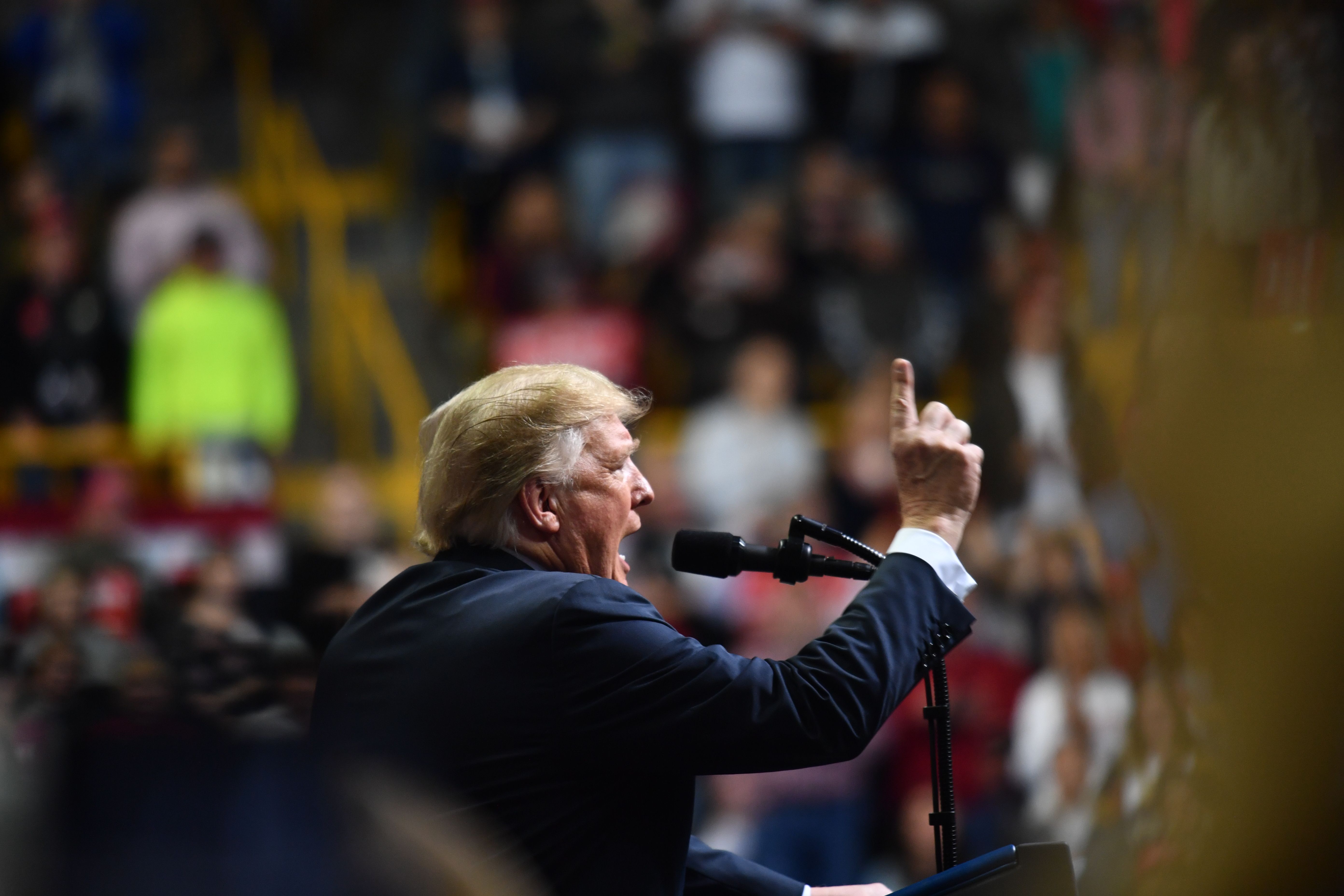Don't be fooled by Trump's manufactured voter-fraud crisis
We've heard this all before


A free daily email with the biggest news stories of the day – and the best features from TheWeek.com
You are now subscribed
Your newsletter sign-up was successful
If Democrats manage to take one or both houses of Congress as the result of the midterm elections, you can be fairly certain President Trump will respond to the setback in classic Trump fashion: He will manufacture a crisis.
He was laying the groundwork for this on Monday, the last day before the election, warning of voter fraud in his tweets and at every stop on the campaign trail.
"Law Enforcement has been strongly notified to watch closely for any ILLEGAL VOTING which may take place in Tuesday's Election (or Early Voting)," he tweeted Monday.
The Week
Escape your echo chamber. Get the facts behind the news, plus analysis from multiple perspectives.

Sign up for The Week's Free Newsletters
From our morning news briefing to a weekly Good News Newsletter, get the best of The Week delivered directly to your inbox.
From our morning news briefing to a weekly Good News Newsletter, get the best of The Week delivered directly to your inbox.
In Cleveland, he told reporters: "Just take a look. All you have to do is go around, take a look at what's happened over the years, and you'll see. There are a lot of people — a lot of people — my opinion, and based on proof, that try and get in illegally and actually vote illegally. So we just want to let them know that there will be prosecutions at the highest level."
The problem with Trump's assertions about illegal voting is that there is no evidence of widespread voter fraud in the United States. You could be fooled for thinking otherwise, after years of digging and wild claims by Republicans who, for some reason, can never simply admit they took a good licking in an election. Trump's fraud, it turns out, is a fraud itself.
We've been down this road before. During the final days of the 2016 presidential campaign, when it appeared that Hillary Clinton was going to win the election, Trump began warning against the widespread voter fraud that he expected would "rob" him of his rightful victory. Trump, it appeared at the time, was prepared to respond to defeat with a wholly manufactured crisis of legitimacy. He even warned he might not accept the election results.
Then he won. But his unexpected victory didn't quite put an end to his conspiracy-mongering. While Trump won the Electoral College, he lost the popular vote — and that seemed to stick in his craw. He asserted repeatedly that this was because millions of people voted illegally for Clinton. There was no evidence to support this claim. He even appointed a "Presidential Advisory Commission on Election Integrity" to search for evidence of such fraud. It found nothing.
A free daily email with the biggest news stories of the day – and the best features from TheWeek.com
At the same time, Trump's own legitimacy in office came under scrutiny. Questions about his campaign's contact with Russia, which were nascent during the campaign, exploded into full view around the time of his inauguration, and culminated in the appointment of Robert Mueller as special counsel to investigate the events of the 2016 campaign.
Trump's allies suggested the special counsel investigation was evidence of hypocrisy: Trump's critics were angry when he questioned the legitimacy of a Clinton election, they said, yet were perfectly happy to undermine Trump. "Now liberals are singing a different tune," wrote one observer at National Review.
The big difference between Trump's accusations of voter fraud and the allegations of corruption surrounding his campaign is that there is some evidence to support the latter. We know from emails that Trump's son was willing to meet with Russians to dig up dirt on Clinton. We known that Facebook and Twitter were manipulated by Russian hackers in 2016. And Trump's own supine behavior when meeting with Russian President Vladimir Putin invited its own conjecture.
Meanwhile, there still remains virtually no evidence of voter fraud. There were four examples of such fraud discovered in 2016 — that's not enough votes to turn the tide in a local dogcatcher election, much less a campaign for president of the United States.
Trump, of course, is just continuing a longstanding Republican tradition. If you listened to Fox News in 2008, you'd be forgiven for believing that Barack Obama's presidential victory was due almost entirely to a few Black Panthers who stood menacingly outside a single Philadelphia polling station that year. That bit of nonsense was so effective that Georgia GOP gubernatorial candidate Brian Kemp revived it this year for his race against his Democratic opponent, Stacey Abrams, who is African American.
But Trump now has the federal government at his full disposal — and, in Jeff Sessions, an attorney general apparently willing to follow the president's muse with official investigations. "Fraud in the voting process will not be tolerated," Sessions warned on Monday.
I repeat: There is no evidence that voter fraud exists, at least not to any significant degree. There never has been that evidence, and there almost certainly won't be this time around. Trump casts himself as the defender of election integrity, even as he abuses the system and its participants.
Joel Mathis is a writer with 30 years of newspaper and online journalism experience. His work also regularly appears in National Geographic and The Kansas City Star. His awards include best online commentary at the Online News Association and (twice) at the City and Regional Magazine Association.
